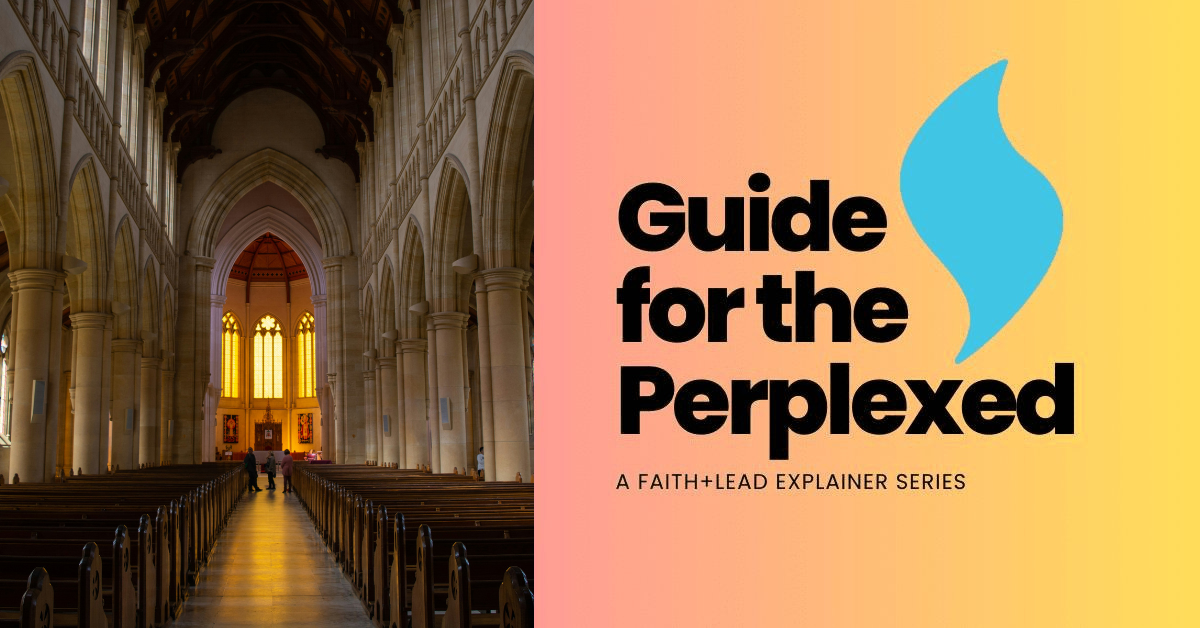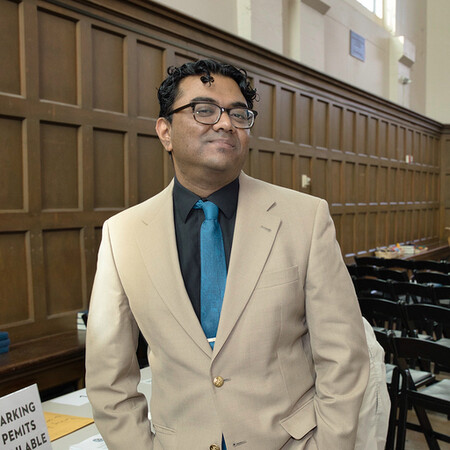This article is the third in a miniseries within our ongoing Guide for the Perplexed series, in which we define a weighty theological term, and describe why it matters to Christian communities.
One of the most commonly-asked questions by churches today—perhaps the most-commonly asked question— is what can we do to increase attendance?
Since the mid-20th century, church membership across denominations has been trending downwards. Surveys and statistics have suggested that the rate of decline is accelerating, and various organizations (both faith-based and secular) posit that we’re fast heading towards a future where only a third of Americans will say they regularly attend church services.
That future—and even our present reality—is a long way from the days when the church was one of the public foundations of political and economic power. The tangled relationship stretches back millennia, to a strange confluence of religion and empire known as “Christendom.”
The idea of Christendom is a complicated one, as much a Rorschach as anything in Christianity can be. Originally simply meaning “Christianity,” the historical term Christendom came to refer to countries where Christianity was publicly and politically dominant. As wars were won and empires expanded, European rulers (particularly Charlemagne, who united much of Western Europe) attributed this favor to God; and, not understanding that correlation is not causation, they fretted that if their lands ever became bare of churches, God might rescind that favor.
Over centuries, Christendom became synonymous with the idea of the church as a dominant socio political entity. Newspapers would dedicate entire sections to covering local church news, including publishing full-text sermons on Christmas and Easter. Industrialists and politicians would share pews on Sunday mornings. In the Age of Association, church was where things happened.
But while historical Christendom had hegemony, contemporary Christendom did not enjoy the same luxuries and privileges. Amid the transition to the Age of Authenticity, churches became less of the cultural touchstone that they had been for decades. As people turned their backs on traditional social, political, and religious institutions, membership and influence fell away, and have kept falling.
What if it’s not about power?
I once asked a priest at my (Episcopal) cathedral in Seattle for his thoughts on declining church attendance, both in the context of denominations that are getting smaller, and of being in a city where 65 percent of residents barely, if ever, attend church. He pointed out that this means the people who do turn up on Sundays are there because they want to be there; and not only do they want to be there on Sundays, they want to be part of the church’s life and its work beyond Sundays.
That, to me, is the goal, and the bigger point: not the fear of the fall of Christendom by those who grasp at the power structures of Christianity; not the human instinct to fix these inherited structures in order to reverse the loss of privilege; but trusting and relying on God through this age of change.
Maybe we’re a long way away from the mythical “good old days” of every pew being filled on Sundays, but Christ’s local church will always endure. As long as churches preach the Gospel of Jesus Christ, and do his work in the world, there will be people in those pews. An authentic church of 20 can be a better body of Christ than an entitled church of 2,000.
The lens of trust
One way of thinking about this shift of the church is through the lens of trust. How much do we trust God that our churches are in good hands? If we do, then the decline of Christianity in the public sphere is not a sign of the end times, and is instead an evolution of the role of the church in a rapidly developing world; a role where the church continues to bear witness to God’s salvation by faith and practice. Hardly revolutionary.
But if we don’t trust God, we panic; we desperately try to make church the center of the world again, following false gods of record-breaking Sunday attendances and Wall Street-like budgets. Church becomes less about the Gospel, and more about us; and a church in our image cannot stand.
Kelle Brown, the senior pastor of Plymouth United Church of Christ in Seattle, writes “Maybe the church isn’t dying. Maybe the consumers are leaving, the ones who can only imagine staying if things are as they remember, or if their control is sustained. Just maybe, the church will be what’s left after nationalism, capitalism, patriarchy, and supremacist culture bows out. Maybe we’re losing; as in, getting more healthy, more agile, more lean, and the ones who insisted on moments will stand aside as we build a movement.”
Those are comforting words, but it is nonetheless hard to read news of yet another church closing, or to look out at our own churches and see empty seats, especially when we have to acknowledge that people have many good reasons for leaving the institutional church. Generations’ worth of scandals, abuse, and cover-ups, have left multitudes outright hostile towards organized religion.
All the more reason that the work of a post-Christendom church not be hell-bent on stuffing pews or calling for bigger pledges and tithes from its members. A church free from the chains of dominant culture can be a church that is the hands and feet and voice of God in the world; not demanding more rights and privileges and power for itself, but instead demanding justice, mercy, and compassion for those the world—and the church itself—has left behind.
The Rev. Amy Butler, of the National City Christian Church in Washington, D.C., contrasts the grief of church closures, with the resurrection of Jesus being the whole heart and point of Christianity. To that end, she started Invested Faith, a fund that receives assets from closed churches, and distributes them to faith-based social justice entrepreneurs. The mandate of the Gospel, she says, never ends.
A more spiritual than political entity
In 2013, Pope Francis criticized Christendom in his Evangelii Gaudium (“The Joy of Evangelism”), decrying the (Catholic) church’s “[obsession] with immediate results,” instead of taking the longer view of the mission of the church. Before his predecessor became Pope Benedict XVI, Father Joseph Ratzinger said in 1969 that he hoped a post-Christendom church would be more a spiritual than a political entity. And if this comes at the cost of institutional power, the church that emerges on the other side of this transition will be “the Church of the meek.”
The sentiment is echoed by author Brian D. McLaren, who writes that before Christianity had wealth and power, and televangelism and colonialism, it was a revolutionary moment that believed in, and fought for, life on the margins of society.
Perhaps there was a reason Jesus didn’t climb the Mount of the Beatitudes to say “Blessed are the powerful, for their churches shall never be empty.” Perhaps Jesus sees the churches of the meek, of the merciful, of the poor in spirit, and sees that even as they struggle to keep the lights on, they are the ones welcoming refugees, sheltering unhoused people, comforting runaways, and nursing people with addictions.
And perhaps, even as we pivot away from Christendom, we turn towards something new and beautiful; something not made of human hands, but of the trust that only comes from, and with, God.




Well said!